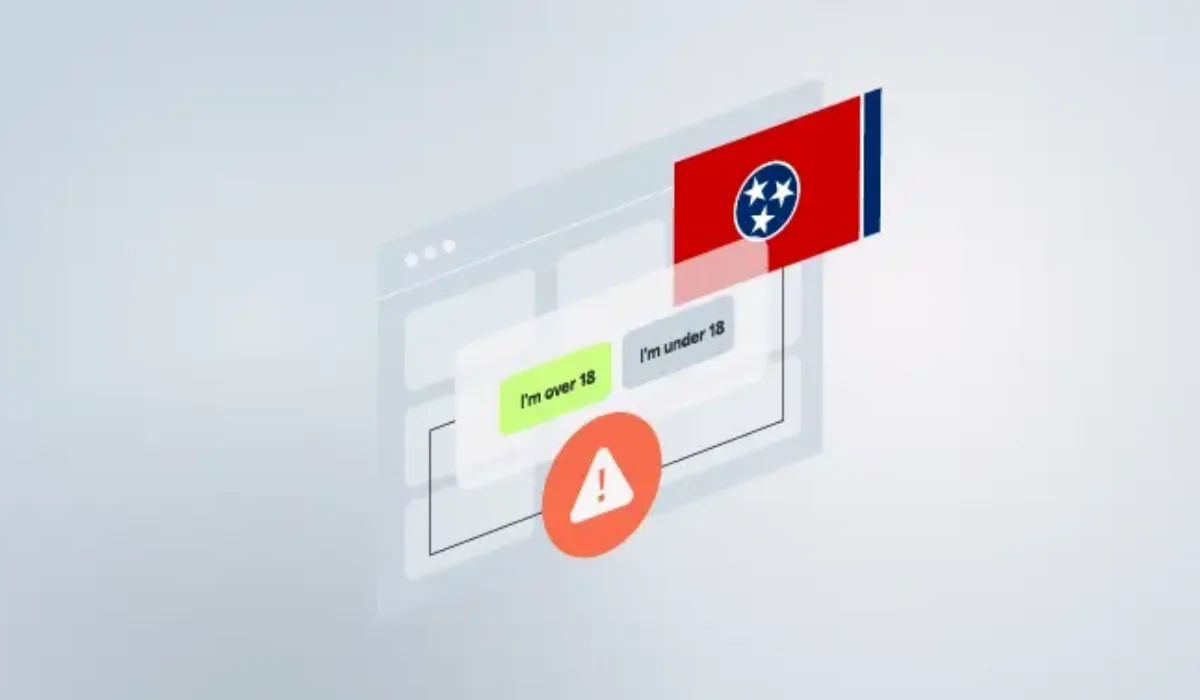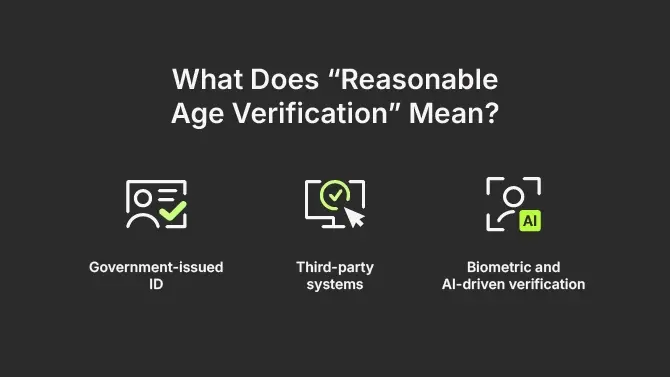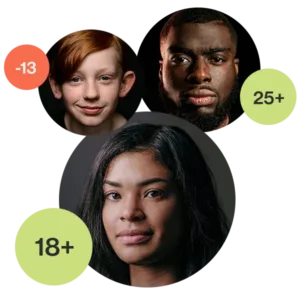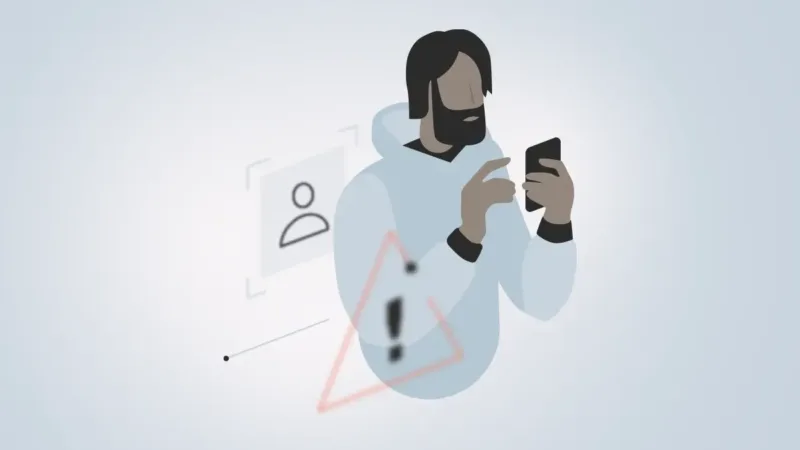Tennessee Age Verification Law: Everything You Need to Know

As online content regulation heats up across the United States, Tennessee has taken a bold step in the name of protecting minors. The Tennessee Age Verification Law, part of a growing trend of state-level internet legislation, has sparked intense legal and public debate. Whether you’re a website owner, legal professional, or digital policy watcher, here’s what you need to know about this law, its implications, and what’s likely to happen next.
What Is the Tennessee Age Verification Law?
The Tennessee Age Verification Law, officially named the Protect Tennessee Minors Act, is a piece of legislation aimed at shielding children and teenagers from accessing explicit material online. It mandates that any commercial website or digital platform that publishes, distributes, or facilitates access to content deemed “harmful to minors” must implement reasonable age verification measures to ensure that users are at least 18 years old. This law seeks to make adult websites adults only as well shield minors from any adult content, including social media platforms.
What Qualifies as “Harmful to Minors”?
The law defines harmful material using a standard similar to that found in obscenity laws. This includes content that:
- Appeals to the prurient interest of minors,
- Depicts or describes sexual conduct in a patently offensive way,
- Lacks serious literary, artistic, political, or scientific value for minors.
However, critics argue that these terms—particularly what constitutes “patently offensive” or “serious value”—are subjective and context-dependent, creating uncertainty for platforms that might inadvertently fall under the law’s reach.
Which Websites Are Affected?
Although the primary targets are pornographic and adult entertainment websites, the law is not limited to explicit-only platforms. It potentially applies to:
- User-generated content sites (e.g., Reddit, OnlyFans, Tumblr),
- Art and education platforms that contain some sexually explicit or mature material,
- News media outlets covering sensitive topics that could be interpreted as “harmful.”
The key test lies in whether a substantial portion of a website’s content meets the harmful-to-minors definition—a term that the law does not precisely quantify, opening the door to wide interpretation and enforcement risks.
What Does “Reasonable Age Verification” Mean?

The law requires website operators to use commercially reasonable methods of age verification. These may include:
- Uploading or scanning a government-issued ID,
- Use of third-party age verification providers,
- Biometric verification or AI-driven ID checks (if compliant with data privacy laws).
This shift from passive age gates (“Are you over 18?” checkboxes) to verified identification marks a significant legal and technical hurdle for many platforms.
A Broader Trend With National Implications
Tennessee’s law is part of a broader national trend of state legislatures trying to regulate digital content in lieu of federal action. In doing so, it pushes complex questions to the forefront: How do we balance child protection with free speech? Who determines what content is too adult? And what level of personal data collection is acceptable in the name of age verification?
These unresolved issues have made the Protect Tennessee Minors Act a lightning rod for legal challenges and public debate. The lack of clarity around its scope, definitions, and enforcement mechanisms may not only create compliance burdens but also risk infringing on constitutional rights—a point that civil liberties groups have already raised in court.
When Did the Law Go Into Effect?
The law was scheduled to take effect on July 1, 2024. However, its enforcement has been partially stalled due to ongoing legal challenges (more on that below). Despite the official date, the implementation landscape remains fluid as courts weigh its constitutional implications.
What Does the Law Require From Websites?
Websites that fall under the scope of the Protect Tennessee Minors Act must take concrete steps to prevent minors from accessing adult content. Specifically, the law imposes three primary obligations:
Implement Age Verification Systems:
Covered websites are required to deploy commercially reasonable age verification methods. This goes beyond simple pop-ups or checkboxes asking for a user’s age. Instead, it typically involves verifying the user’s age through more secure means such as scanning a government-issued ID, uploading documentation, or using third-party age verification services that can authenticate a user’s identity and age.
Restrict Access to Harmful Content for Users Under 18:
If the content qualifies as harmful to minors under the law’s definition, access must be blocked or restricted unless the user is verified as an adult. This means websites must create technical barriers that prevent underage users from simply clicking through to access explicit material.
Face Civil Penalties for Non-Compliance:
Failure to comply with the law may result in significant civil liabilities. Website operators can be sued in court and may be ordered to pay damages, statutory penalties, and attorney’s fees. The law also allows for private lawsuits, meaning individuals (such as parents or guardians) can bring claims against non-compliant websites, increasing the legal risk for digital content providers.
While the law doesn’t require websites to store identification data, many privacy advocates are concerned that any system requiring document upload or ID verification could still lead to data retention, misuse, or breaches, especially in the absence of clear data protection mandates.
Legal Challenges and Temporary Injunctions
Shortly after its passage, the law faced immediate legal pushback. Free Speech Coalition, a trade association representing the adult entertainment industry, filed an age verification lawsuit arguing the law was:
- Unconstitutional under the First Amendment.
- Overly broad, potentially chilling protected expression.
- Poorly defined, lacking clarity on what constitutes a “substantial portion” of harmful content.
In June 2024, a federal judge granted a temporary injunction, blocking the law from being enforced while the courts consider its constitutionality. The case remains pending, and its outcome could set a national precedent.
Who Supports and Opposes the Law?
Supporters:
- Tennessee legislators and family advocacy groups see the law as a necessary safeguard to protect children from online pornography.
- Governor Bill Lee, who signed the law, positioned it as part of a broader effort to uphold conservative values and child welfare.
Opponents:
- Civil liberties groups such as the ACLU and EFF oppose the law, warning of censorship risks and data privacy breaches.
- Adult content platforms and digital rights advocates argue that the law puts an undue burden on lawful content creators and threatens open internet principles.
Comparison With Similar State Laws
📊 State Age Verification Law Comparison
| State | Law Name / Focus | Effective Date | Key Requirements | Unique Features / Notes |
| Tennessee | Protect Tennessee Minors Act | July 1, 2024 (blocked) | Mandatory age verification for websites with a substantial portion of harmful content | No carve-outs for general platforms; civil liability; broad, undefined scope |
| South Dakota | HB 1053 – Age Verification for Harmful Content | July 1, 2025 | Requires age verification for any website hosting material deemed harmful to minors | Applies to all such websites regardless of content proportion; enforced by Attorney General and allows civil lawsuits by parents or guardians |
| Wyoming | HB 43 – Age Verification for Harmful Material | July 1, 2025 | Mandates reasonable age verification for websites with at least one-third pornographic content | Includes private right of action; applies to residents and those present in the state for over 31 days |
| Texas | HB 1181 – Age Verification for Adult Sites | September 2023 (blocked) | ID checks; warning labels on adult content | Declared unconstitutional by federal court; under appeal |
| Louisiana | Act 440 – Adult Content Verification | January 1, 2023 | Government ID or third-party verification | First to pass; narrow scope; relatively stable implementation |
| Utah | Adult Site & Social Media Restrictions | March 2024 | ID-based verification; parental tools for minors | Covers both pornographic sites and social media platforms |
| California | Age-Appropriate Design Code Act | July 2024 (blocked) | Age-aware site design; protections for minors | Focused on data privacy rather than explicit content; challenged by tech industry |
Summary:
- South Dakota’s law applies broadly to any website hosting material deemed harmful to minors, regardless of the proportion of such content. It is enforced by the Attorney General and allows civil lawsuits by parents or guardians.
- Wyoming’s law targets websites where at least one-third of the content is pornographic, requiring reasonable age verification. It includes a private right of action and applies to residents and those present in the state for over 31 days.
- Tennessee, Texas, and Utah have implemented or attempted to implement similar laws, with varying scopes and enforcement mechanisms.
- California stands apart with a design-first, privacy-focused strategy, though its law has been blocked pending legal challenges
What Happens Next?
The future of Tennessee’s age verification law hinges on the courts. If the injunction is lifted, websites could soon be forced to adopt stringent verification systems—or face lawsuits. But if the law is struck down, it may curb momentum for similar legislation in other states.
Meanwhile, Congress is watching. A patchwork of state-level laws may ultimately prompt a federal standard for age verification or a major Supreme Court battle over digital rights.
Last Thoughts
While the intention to protect minors is widely shared, this legislation is still receiving backlash from groups worried about free speech, user privacy, and who controls online access. For businesses operating in Tennessee or serving its residents, now is the time to monitor legal updates, review content practices, and evaluate compliance options. Whether upheld or overturned, the law is a clear signal: age verification is no longer a fringe issue, but it’s moving to the center of internet governance.








